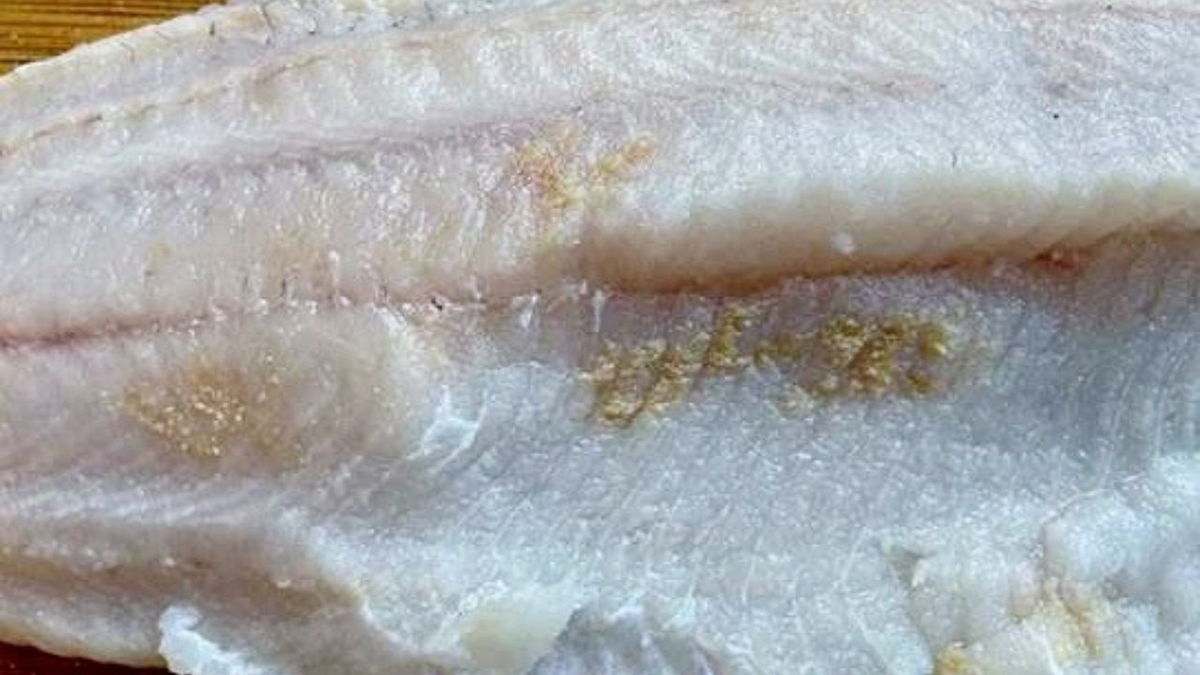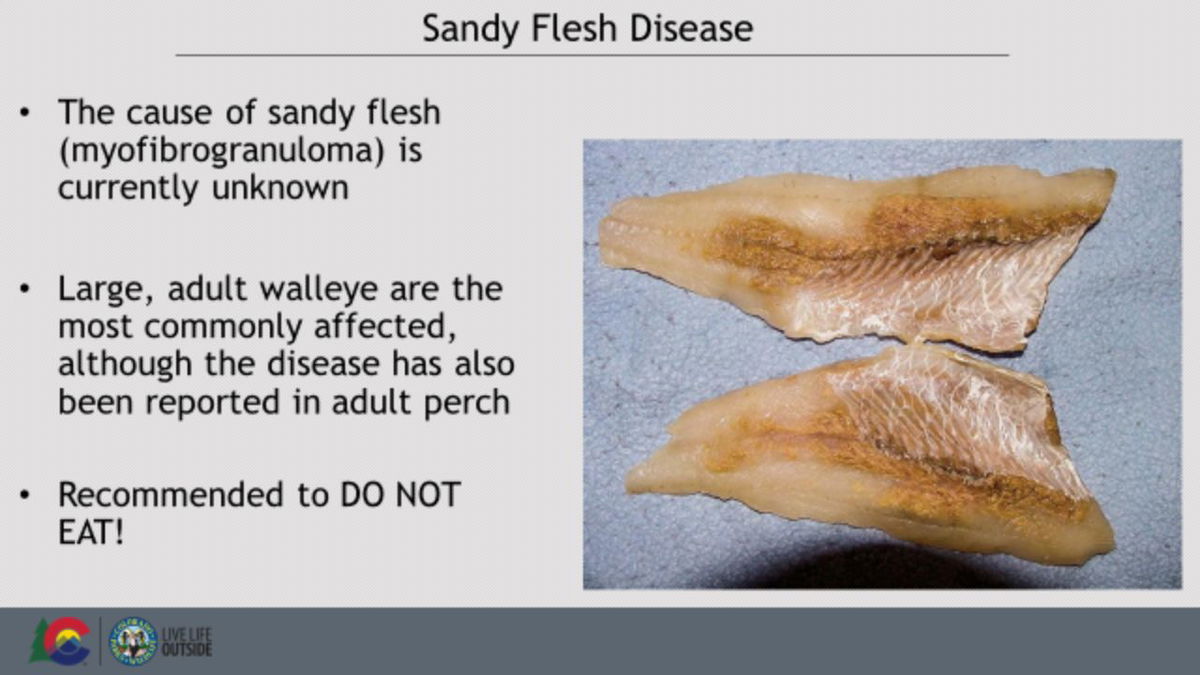CPW reports rare disease found in walleye caught at Lake Pueblo

PUEBLO, Colo. (KRDO) -- Colorado Parks and Wildlife (CPW) is warning anglers that myofibrogranuloma, a rare degenerative muscle disease known as “Sandy Flesh Disease,” has been confirmed in a single walleye caught last fall at Lake Pueblo State Park.
According to CPW, Sandy Flesh Disease is not believed to be transmittable to humans, but the agency recommends that you do not eat a walleye you suspect is infected. If you catch a fish you think is infected, CPW asks that you report it and turn at least photos in to be analyzed at CPW’s Aquatic Animal Health Laboratory.

CPW says this is the first time Sandy Flesh Disease has been found in Colorado. Typically it occurs in the Midwest, particularly in North and South Dakota, Minnesota, Wisconsin, and Nebraska.
According to CPW, the disease primarily affects older walleye, but there have been a few cases of infected yellow perch. The cause of Sandy Flesh and the means of transmission are unknown.
The disease can only be detected when cleaning a fish. The outside of the fish will look normal. CPW says areas of the filet will look semi-translucent, or yellowish brown, with knotted muscle fibers. The tissue can resemble meat with freezer burn. The diseased area may look granular with mineral deposits, or even opaque.
CPW says anglers who discover Sandy Flesh in a fish should not discard the entrails back into the lake. Entrails should be disposed of with household waste or buried.
